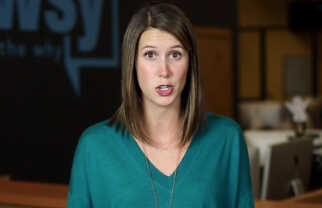For the second time since 2012, voters in Slovenia have rejected an attempt to legalize gay marriage.
自2012以来的第二次,斯洛文尼亚选民拒绝同性恋婚姻合法化。
Back in March, the country's parliament passed legislation redefining marriage as a "union of two" rather than a "union of a man and a woman." It also granted gay couples the right to adopt children.
早在今年3月,斯洛文尼亚议会通过立法,重新定义婚姻为“两个人的结合”,而不是“一个男人和一个女人结合”。立法中也允许同性恋夫妇收养孩子的权利。

A group called the "Children Are at Stake" gathered more than 40,000 signatures and demanded a referendum. Critics of the legislation argued that adoption by gay parents would go against a child's need both a mother and a father figure.
一个被称为“儿童正处于危险”的群体聚集了40,000多个签名,要求进行全民投票。立法批评者认为,同性恋父母收养孩子违背了孩子需要一个母亲和一个父亲的需求。
As of Sunday afternoon. authorities said 90 percent of the votes had been counted and 63 percent voted against same-sex marriage.
截至星期日下午,当局称百分之90的选票已经被计算在内,其中百分之63的人投票反对同性婚姻。
Since 2006, gay couples in Slovenia have been granted rights under civil partnership. Slovenia, a largely Catholic country, would have been the first Central European, Slavic and post-communist nation to approve gay marriage.
自2006以来同性恋伴侣在斯洛文尼亚已获得民事伴侣权利。斯洛文尼亚,一个主要的天主教国家,成为第一个中欧、斯拉夫和后共产主义允许同性恋结婚的国家。
But other Central European countries are moving in the opposite direction. Slovakia and Croatia recently followed in the footsteps of neighbors like Poland and Bulgaria by updating its constitutions to stress marriage is only valid between a man and woman.
但其它欧洲国家正朝相反的方向发展。最近,斯洛伐克和克罗地亚也紧跟着邻国像波兰和保加利亚的脚步,更新其宪法强调婚姻只有在男人和女人之间才能生效。
In total, 14 countries in Europe allow same-sex marriage. Ireland joined that list in May after a nationwide vote.
欧洲总共有14个国家允许同性婚姻。爱尔兰在经过全国公投后于五月加入该列。
译文属可可原创,仅供学习交流使用,未经许可请勿转载。













